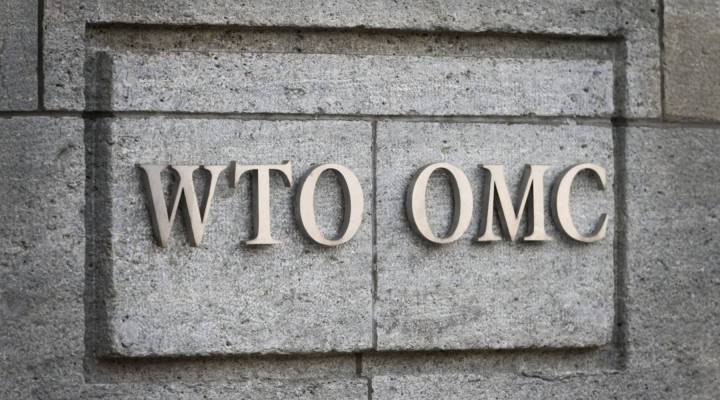
The Trump administration is trying to "effectively kill" the WTO’s Appellate Body
The Trump administration is trying to "effectively kill" the WTO’s Appellate Body

The World Trade Organization has something called the Appellate Body. Think of it like a Supreme Court for trade issues. The Trump administration has been blocking the appointment and reappointment of judges to that panel, so as its members’ terms expire, that “Supreme Court of trade” is shrinking. It normally has seven members, but now it’s down to three. If it loses one more, it’ll stop functioning. Marketplace’s Sabri Ben-Achour spoke with Jennifer Hillman, a former member of the WTO Appellate Body from 2007 to 2011. She’s now a professor at Georgetown.
Below is an edited transcript of their conversation.
Sabri-Ben Achour: A lot of people might not be familiar with this WTO Appellate Body. What kind of cases would come before you when you were there?
Jennifer Hillman: All of the cases are cases that are brought by one country against another country, complaining that whatever that country did violated one of the rules of the WTO. They can range from really small cases to really big cases.
Ben-Achour: The Trump administration just last month blocked the reappointment of a judge to that panel. And it’s now at the minimum of number of members that it legally needs to even function. So, it is not clear if the administration is trying to choke this court to death or if this is some kind of bargaining position. What do you think they are trying to do?
Hillman: I think they’re trying to choke it to death. I think they really are trying to effectively kill this dispute settlement system. This is just a decision by USTR [U.S. Trade Representative] to consistently block any process to allow for the appointment of any new members.
Ben-Achour: The U.S. has an array of complaints about the WTO – that it’s treated unfairly, that there are reforms needed – is the U.S. treated unfairly at the WTO?
Hillman: I don’t think so. The U.S. has brought and won more cases than any other country, and I think the number is something like 85.7 percent of the cases that the United States brings, we win. The complaints have all come in the realm of the trade remedy decisions. This is anti-dumping duties, countervailing duties and safeguard cases where we’ve imposed tariffs or other restrictions on imports coming into the U.S. market, and other countries have complained that we haven’t done that consistently with those WTO rules.
Ben-Achour: Do you agree that there are other reforms needed at the WTO? Arguably, it’s not set up to deal with a lot of complaints against China, for example.
Hillman: Yes, there unequivocally are necessary reforms. In my own view, the biggest substantive failing of the trading system rules has been its inability to discipline subsidies.
There’s a lot happening in the world. Through it all, Marketplace is here for you.
You rely on Marketplace to break down the world’s events and tell you how it affects you in a fact-based, approachable way. We rely on your financial support to keep making that possible.
Your donation today powers the independent journalism that you rely on. For just $5/month, you can help sustain Marketplace so we can keep reporting on the things that matter to you.


















